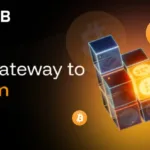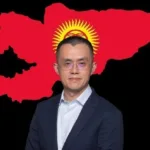The UN has launched a white paper praising the results of blockchain expertise in its pension fund system.
Blockchain expertise has steadily helped firms and organizations to enhance transparency, minimize prices, and scale back fraud in areas like finance, provide chains, and healthcare. Now, the United Nations is taking steps to combine the expertise extra deeply into its operations after testing it inside its pension system.
The UN backs blockchain expertise
The United Nations acknowledged that blockchain expertise is a key device for its digital transformation and inclusive governance technique after a profitable trial in its pension fund system.
A brand new white paper launched by the worldwide physique concluded that blockchain offers “the final word expertise for digital identification verification,” with the potential for the UN to now scale the expertise throughout its businesses and market it as a world digital public good.
The challenge is centered on the United Nations Joint Employees Pension Fund (UNJSPF), which manages retirement advantages for workers throughout the UN system. For many years, the pension fund has operated utilizing a handbook, paper-based course of that required beneficiaries to show their identification and ensure they’re nonetheless alive.
With greater than 70,000 beneficiaries in 190 international locations, the system was gradual, pricey, and weak to fraud. The reliance on bodily paperwork usually led to errors, delays, and even suspensions. It additionally led to round 1,400 pension funds being paused annually due to verification issues.
To handle these challenges, the UN determined to make the most of blockchain in partnership with the Hyperledger Basis. The initiative was launched first in 2020, after which there was a bigger rollout in 2021 when the pension fund moved to a digital certification system constructed on blockchain.
The UN switches from paper to blockchain
The white paper described the outdated pension system as “a 70-year-old course of liable to error and abuse.”
Yearly, the fund needed to handle paper kinds from tens of 1000’s of retirees worldwide. Employees spent hours receiving, opening, scanning, and archiving paperwork, and all these steps launched alternatives for errors or delays.
In line with the report, this variation to blockchain expertise improved effectivity and transparency. Beneficiaries may affirm their standing digitally, whereas the fund gained better confidence with fewer weak factors within the system to be exploited.
“The shift away from bodily documentation has considerably decreased processing occasions,” the UN report’s authors famous. They referred to how blockchain allowed beneficiaries to securely confirm their identification and standing with out mailing or submitting bodily paperwork, reducing down on processing occasions and making the system extra resilient, whereas additionally eliminating repetitive checks and the danger of duplicate knowledge entry.
The United Nation is now exploring methods to adapt the Digital Certificates of Entitlement mannequin, which is the blockchain-based identification verification system, throughout its businesses and probably share it with different worldwide teams.
Sameer Chauhan, the director of the United Nations Worldwide Computing Centre, wrote within the paper’s conclusion that the challenge offered not solely a technical resolution but additionally “an operational mannequin for a way organizations throughout the UN household can collaborate to design safe, scalable, and inclusive digital public infrastructure.”








